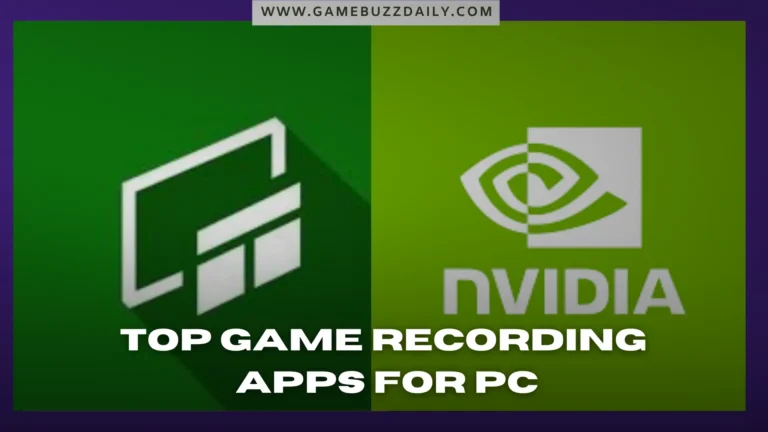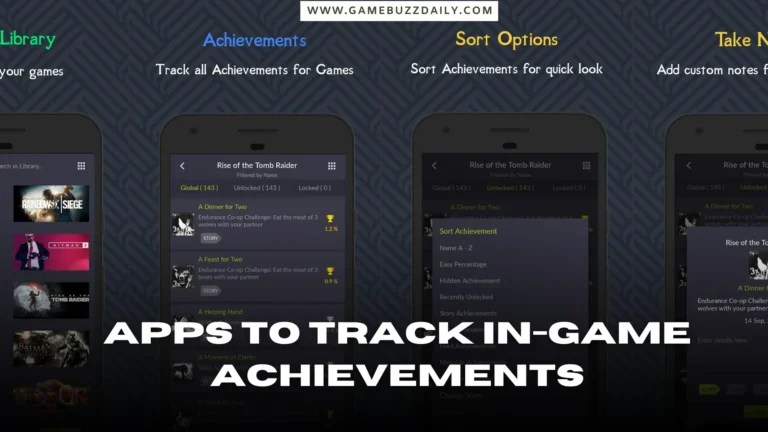How to Avoid Phishing in Online Games: A Comprehensive Guide
Find out how to not fall for How to avoid phishing in online games with the aid of these recommendations. Receive tips on how to protect your accounts from scams, how to secure data, and other tricks for safe gaming in 2024. Don’t forget to be safe and aware of everything online!
Table of Contents
Introduction
Since the COVID-19 pandemic accelerated online gaming, gamers have more frequently been the victims of phishing attacks. These malicious attempts are planned to obtain personal details like account logins, virtual currency and real money. It is important to protect ourselves; that is why it’s crucial to know how to avoid phishing in online games. You may use the tips and activities presented below to follow recommended guidelines and become protected while playing games on the Internet.
What is Phishing in Online Games?
How to avoid phishing in online games is whereby these scammers attempt to lure other players into parting with sensitive information. It usually entails creation of fake login pages, post of links to phishing sites or posing as an official games firm..
Common Types of Phishing in Gaming

- Fake Rewards or Giveaways: Phishers prey on gamers with fake promises of free Virtual goods.
- Credential Stealing: This is the actual account information and the intention of fraudsters is to capture this information through look alike log in pages.
- Social Engineering: When the trickster promised the players they will help them find other players to get matched only if they provided necessary information.
Learn more about phishing attacks from Kaspersky’s guide.
Why Are Gamers Targeted?
- Valuable Accounts: Special and appealing virtual assets coupled with paid subscriptions make accounts valuable for theft.
- Lack of Awareness: Basically, most of the gamers are not fully knowledgeable in cybersecurity measures.
- Social Interactions: Engaging with victims is made possible by multiplayer games creating vulnerabilities.
For further reading, visit Stay Safe Online’s cybersecurity tips.
Recognizing Phishing Attempts
1. Suspicious Links
Hover over links to see where they lead. Phishing websites often mimic official gaming platforms with slight changes in the URL.
2. Unusual Requests
Requests for personal information or account credentials should raise alarms.
3. Fake Emails
Emails claiming urgent issues with your account are often phishing attempts. Verify by logging into your account through the official website.
How to Protect Your Gaming Accounts from Phishing
1. Use Strong, Unique Passwords
Password then forms the first layer of protection in a particular account. Create a password which has both the capitals and the small letters as well as numbers and symbols. This means that it is wrong to use the same password while creating accounts with the various social network sites you wish to become a member of.
2. Enable Two-Factor Authentication (2FA)
It mainly assists to tighten up security by providing the option of two-factor authentication. It asks you to enter another code received on your phone number or email whenever you want to sign in, which is not easy for hackers to do.
3. Be Wary of Suspicious Links
Never click on links or download attachments which are from unknown persons or companies. Clicking the link mostly opens other links, so it’s always key to hover the cursor over the link first and inspect it.
4. Verify Game-Specific Communication
Social media platforms and websites of computer games such as League of Legends, World of Warcraft, and Fortnite are considered to be formal modes of sending messages. It is crucial to be skeptical of direct messages or those emails sent by the account if it is not verified.
5. Report Suspicious Behavior
Most games allow you to report suspicious accounts or messages. If you encounter phishing attempts, report them to the game developers to prevent further incidents.
Secure Your Devices How to avoid phishing in online games
1. Use Antivirus Software
Virus protection prevents malicious software from accessing your computer, which would allow it to take personal details and manipulate your accounts.
2. Keep Software and Games Updated

Hacking organizations depend heavily on using gaps that are found in applications that come with old versions of software. There are however ways in which you can mitigate such risks; see to it that the gaming platform being used is up to date and the antivirus used is also up to date.
3. Use a Secure Internet Connection
Do not connect to unsecured Wi-Fi connections because they may be attacked by hackers. Because gaming requires you to reveal your location and identity for Multiplayer, use a VPN for security reasons.
Best Practices for Online Safety
- Be Wary of Free Offers
Scammers often use free in-game currency or skins as bait. Stick to official events and stores. - Avoid Public Wi-Fi
Public networks are easily exploited by hackers. Use a VPN for added security. - Keep Games Updated
Regular updates fix security vulnerabilities that could be exploited by scammers.
How Gaming Platforms Protect Users
Security Features
Platforms like Blizzard use authenticators to secure accounts.
Reporting Suspicious Activity
Most platforms provide tools to report phishing attempts directly.
Player Education
Gaming companies regularly publish security tips to educate their users. For example, check out Riot Games’ security advice.
Security Measures by Popular Gaming Platforms
| Platform | Security Feature | Strength |
| Steam | Steam Guard (2FA) | High |
| Epic Games | App-based 2FA | High |
| Blizzard | Authenticator App | High |
| Xbox Live | Account Activity Monitoring | Moderate |
| PlayStation | Login Alerts | Moderate |
Tips to Avoid Phishing in Popular Games
Fortnite
- Avoid links promising free V-Bucks or skins.
- Use official login portals like Epic Games.
Call of Duty: Warzone
- Ignore random messages offering cheats or hacks.
- Report phishing attempts to Activision.
World of Warcraft
- Avoid third-party gold-selling websites. Stick to in-game trading for transactions.
Protecting Young Gamers
It is therefore incumbent upon parents to act in ways that will precariously guard their children so that they do not fall prey to these games.
1. Educate About Phishing
Teach children to recognize and avoid suspicious links.
2. Monitor Gaming Activity

Keep an eye on their chat interactions and friend lists.
3. Enable Parental Controls
Use built-in parental controls on platforms like PlayStation and Xbox to restrict suspicious activity.
Conclusion
How to avoid phishing in online games is real and active in online games threatening to compromise your game profiles, private information, and money. This way, the risk of falling into a phishing scam is greatly minimized and here are ways that you can increase your security: The shocking fact is that they fall for scams while gaming should be an exciting pastime and a friendly competition.
FAQs
1. What is phishing in online games?
The issue of phishing is best explained as an endeavor to con gamblers into surrendering their personal information by either a link or email or message that seems legitimate but in real sense is not.
2. How can I spot phishing links?
Look for typos in URLs and avoid clicking on links from unknown sources.
3. Is two-factor authentication necessary?
Indeed, 2FA enabled ensures that in cases when your login credentials have been compromised, the attackers cannot proceed to change things or move funds.
4. Can phishing affect financial data?
Some gamers use payment details for their gaming accounts, which exposes you to fraudsters.
5. What should I do if I fall victim to phishing?
The first thing you need to do is to delete it and change your password right away, enable 2FA, and inform the game support team.
6. Are phishing scams more common in free games?
Yes, free-to-play games often attract phishing attempts due to their large and diverse player base.
7. How can parents help prevent phishing?
Educate children about online safety and monitor their gaming activities regularly.
Explore more about enhancing your gaming and esports experience at GameBuzzDaily.






